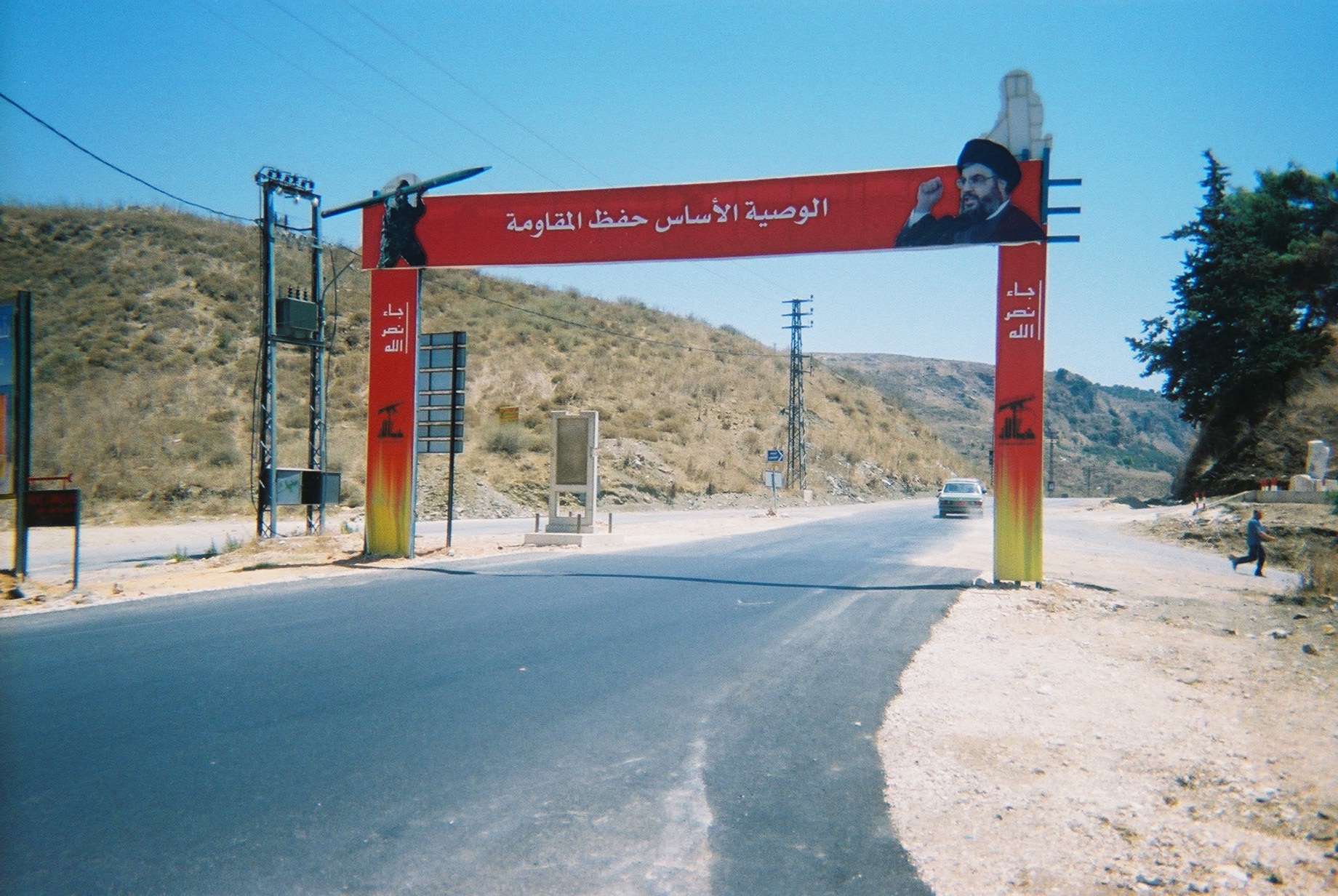Civilization
Reply to Michael Walzer on Israel’s Pager Attack and Just War Theory
Michael Walzer’s complaint about the pager attack on Hezbollah operatives fails to account for the realities of asymmetric warfare.

Michael Walzer has argued in a New York Times opinion piece that Israel’s “pager attack” on thousands of Hezbollah operatives throughout Lebanon was “an act of terrorism,” since it failed to respect “the distinction between combatants and civilians” crucial to the rules of just war.
The pager attack was a highly targeted attack
This is strange, because this attack was, as a matter of fact, one of the most “targeted” that a state can possibly launch against a terrorist or guerilla force operating amongst a civilian population. With greater precision than is usually possible, it was clearly aimed at actual enemy combatants, with far less risk of “collateral damage” and indeed inflicting much less actual damage than most such operations. Nevertheless, Walzer insists that “the attacks … came when the operatives were not operating; they had not been mobilized and they were not militarily engaged.” He stresses that the pagers exploded when the Hezbollah operatives were at home or in various public places, among innocent people.
However, this criterion, “when the operatives were not operating,” if accepted, would make it impossible not only for Israel, but for any state, to effectively fight a terrorist/guerilla force engaged in killing its citizens from within a civilian environment, in an area outside its jurisdiction, and under the protection of a foreign government. This holds true even in the case of an ordinary terrorist group, far less powerful than Hezbollah, and which, unlike Hezbollah, does not possess tens of thousands of rockets aimed at the heart of the country it is fighting, is not committed to its destruction, and does not operate in the service of a hostile regional power – Iran. In fact, Walzer’s suggested rules of engagement are every terrorist’s paradise.
Who uses pagers, but Hezbollah operatives?
Nobody in Lebanon probably uses pagers nowadays except for Hezbollah operatives. If anyone does, theirs did not explode, because only those pagers distributed by Hezbollah to its operatives, which opted for this antiquated technology for security reasons, had been compromised. Those targeted were not merely political supporters or even members of the movement, but people belonging to Hezbollah’s network of operatives.
According to the figures of casualties provided by Hezbollah, there were thousands of people wounded and dozens killed. The ratio of fatalities to wounded was much lower than the normal one, by a huge margin. Obviously, the reason for this is that the power of the explosion was very limited, thereby limiting the danger to surrounding people.
It is unclear whether this limitation was only for technical reasons, because it was not possible to insert a larger quantity of explosive material into those pagers without it being detected, or because there was also a deliberate decision to limit the power of the explosion in order to limit collateral damage. If the latter was the case, then this consideration came at a heavy operational price. Some of the Hezbollah commanders killed in a subsequent bombing in Beirut are said to have been wounded by the pagers, and had already been released from hospital. So, the limited force of the pager explosions meant that many of the Hezbollah operatives hurt remained “un-neutralized,” not merely “un-killed.”
The pager attack minimized collateral casualties
This means that in the vast majority of cases, those standing near the person in whose hands, or pockets, the pagers exploded would not have been harmed – although inevitably there were several such cases among the thousands of explosions. There is no comparison between the rate of “collateral damage” in this case and any other form of military attack aimed at terrorists operating among civilians.
Of course, there were many explosions in public places filled with uninvolved civilians, such as markets, etc. They caused panic, and some people were also directly hit by the explosions. But the images that have become an “iconic” representation of the event – those from a food market, with people buying fruits – show a man falling to the ground while those in close proximity to him run away in panic, apparently unharmed physically. The person in question was obviously a Hezbollah operative, who was targeted very specifically through the pager in his possession.
Contrary to the impression that many people get when they hear that markets and other public places were “targeted” by the explosions, there was no “indiscriminate attack” on the market just because there was a Hezbollah operative there. Aesthetically, this was surely not a pretty sight. Ethically, it was much less problematic than most attacks against terrorists, which ordinarily employ much greater firepower and tend to lead to much greater civilian casualties, as in the U.S. “War on Terror.”
“The operatives were not operating”? So fornicating what?
War is ugly, but the point of jus in bello is to minimize civilian casualties, not to avoid unpleasant sights or to guarantee chivalrous treatment to terrorists.
And yet, Walzer believes that an attack on those Hezbollah operatives was illegitimate because “the operatives were not operating; they had not been mobilized and they were not militarily engaged.” This would mean that a Hezbollah operative who has just fired a rocket from or near a house full of civilians and then leaves his position, as such operatives routinely do, and goes home, or to a café, cannot be targeted there, even if this is done in a relatively “surgical” way.
Supposedly, he can only be attacked either when he is engaged in firing rockets, from this or some other house, the next time, or if the IDF knows for sure that he is on his way to his “military post.” The first and main scenario, most clearly a classic combat situation, is the one which will usually mean killing and wounding civilians on a much greater scale (not to mention the danger to Israelis if the rockets are fired). What is the logic of such a precept, and what is its morality?
How a non-operating rule would apply
Such a rule can reasonably be applied to an armed group that fights a government within its own country in an area under their government’s (more or less) effective control. An armed band of “mobilized” partisans can roam a forest or a mountainous area and be a legitimate target for a military attack when it is on the march. However, when a partisan goes out of the forest and sits in a pub, enjoying his drinks, he is, at that moment, not a combatant that can be targeted but rather a suspect who should be arrested.
By contrast, if an operative of Hezbollah sits in a café in Beirut, which of course they often do, the State of Israel cannot arrest him, and he can only be targeted. It is a great pity that the late Nasrallah did not have a habit of taking a rest from his labors in one of those cafés from time to time, relying on the immunity prescribed by Walzer. If the aim is to avoid killing innocent people as far as possible, then taking him out in a place like that would have been much preferable to bombing his underground headquarters, deeply entrenched within an urban civilian environment. The more “mobilized” the operative is, as Walzer requires, in a dense civilian environment, the greater will be the risk to civilians in attacking him.
Targeting the “non-operating operative” precisely to avoid collateral casualties
It is when the operative “is not operating,” and thus, according to Walzer, should enjoy immunity, that it is often possible to target him personally and as precisely as possible, as was done in the pager attack. When applied to an organization like Hezbollah, the rules prescribed by Walzer would mean that what is legitimate is far more costly in terms of civilian casualties, and what helps minimize civilian casualties is illegitimate.
The crux of the problem is this: Those who fear the abuses to which the notion of “war against terror” can lead say, “Give us a situation as close as possible to a real military combat before we allow you to treat alleged terrorists like combatants rather than suspects.” This line of thought is understandable, but it harbors a cruel paradox: In a hostile territory where no law enforcement is possible, and given the way Hezbollah and similar organizations work, the “cleanest” case of combat will usually be the most lethal one for uninvolved civilians.
When would a war ever be just?
Walzer seems to believe further that attacking a legitimate target at the risk of causing collateral damage can only be justified to the extent that the armed group that is being targeted has a deliberate “strategy of putting civilians at risk for political gain,” as he points out that Hamas has been doing in Gaza. Not so in the case of the exploding pagers according to Walzer: “They were not distributed by Hezbollah in order to put its people at risk. This was not a plot to force Israel to kill or injure civilians. The plot was Israel’s, and the plotters had to know” that innocent people would be hurt. Indeed, Hezbollah was plotting to kill Israelis, and Israel was plotting to kill those plotting to do so.
However, if terrorists operate in a civilian environment not because they actually want to put civilians in harm’s way for political gain, but simply due to their operative considerations and constraints, then what difference does it make for the state that is fighting them? It still faces the same dilemma: It can either attack them in this environment, or allow them to operate undisturbed, thereby rendering them undefeatable.
Of course they put their headquarters in civilian areas
One of us once had an argument with a British journalist about dilemmas of collateral damage regarding Israel’s attacks on Palestinian terrorists in Lebanon. The journalist exclaimed, in response to the argument that Palestinian militants put their bases and headquarters in refugee camps, making civilian casualties inevitable, “Where do you expect them to put the goddamn headquarters?!”
“Well,” answered the Israeli interlocutor, “you have a point … but then, where do you expect us to bomb them?”
Osama bin Laden surely did not plot to put his youngest wife and their children in harm’s way for political gain when he was hiding in his compound in Pakistan, where American forces attacked and killed him, together with one of his daughters, as “collateral damage.” President Obama, who ordered this operation and took pride in it, must have known that civilian casualties could be expected. There is no proof at all that Bin Laden was engaged in, or actively planning, some military activity when he was attacked. It is a moot point whether he presented, at that point of time, a graver continuous threat to American lives than Hezbollah operatives in Lebanon to Israeli lives right now – there might even be, God forbid, a suspicion of an element of revenge in his killing. Although not “shopping in a food market,” he was definitely “at home with his family,” in Walzer’s words. Can an unarmed old man in the bosom of his family be considered a combatant?
The case of Osama bin Laden
Indeed, Amnesty International strongly condemned this “extra-judicial execution” – as if the U.S. could have done anything “judicial” in such a case. Perhaps Amnesty thought Obama should have dispatched U.S. marshals to that compound with an arrest warrant. From Amnesty International we expect nothing less. Is Michael Walzer now adopting similar views?
A further criticism is directed by Walzer against the killing of Ismail Haniyeh, chairman of Hamas Political Bureau, without any harm to civilians, in a high security compound in Tehran: “But when a government authorizes the killing of men it is directly or indirectly negotiating with, such as the Hamas leader Ismail Haniyeh in July, we have to conclude that the government isn’t committed to the negotiations’ success … That is politically and morally wrong.”
In fact, Israel has been indirectly negotiating with Sinwar rather than Haniyeh, and there is not the slightest reason to think that the killing of Haniyeh affected negatively Sinwar’s readiness – very dubious in any case, at least according to the Biden administration – to close a deal. But really, can it be seriously maintained that negotiations between Israel and Hamas after Oct.7 – and while Hamas is holding, and occasionally murdering, Israeli hostages – can be or should be based on mutual trust and goodwill that must not be undermined by one side targeting, in an ungentlemanly way, another side’s leaders?
Is anyone innocent?
Are talks in a hostage situation typically based on mutual trust? Israel was having indirect negotiations with the hijackers in Entebbe, while also planning a rescue operation. The government of the time was willing to go ahead with an exchange of hostages for prisoners in case there would in the end be no viable military option available; to this extent it was genuinely interested in a positive outcome of the talks.
Eventually the IDF killed the very people Israel was negotiating with. Was it wrong? The German-Palestinian terrorists in Entebbe, just like Sinwar in his tunnel in Gaza today, had no illusions about Israeli goodwill, and their readiness to negotiate was not based on any such expectations. Of course, in the present case there is also the wider issue of the conditions for putting an end to fighting. But there is no reason to think that the killing of Haniyeh harmed the prospects of agreement on either side of the talks.
In the Haniyeh case, there is no question of innocent civilians being harmed – but still, Israel is, according to Walzer, “politically and morally wrong.” If liberal sensibilities are to be associated, in the mind of the Israeli public, with such claims, what chance is there for any kind of liberalism in Israel – or anywhere else, under similar conditions?
Failing to notice that the bad guys might win
In a conference in New York attended by one of us some years ago, Walzer expressed his view that “if the bad guys are going to win, then, sure, they must be prevented from doing so by far-reaching means.” Apparently, Israel attacked from all sides by fanatical forces that not only aim at its destruction, but believe, today more so than in the past, that this is a realistic goal, is so strong that it is in no grave danger.
Walzer’s theory of just war has a justified reputation of being eminently sensible, and he holds a life-long record of commitment to the existence and well-being of Israel. So, one must ask: In terms of his theory of just war, do his precepts advance or imperil the safety of civilians? And in terms of the real world in which clouds of catastrophe are gathering everywhere along the borders of the Axis of Evil, has Walzer not noticed that there is some danger that the bad guys might actually win?
This article was originally published by RealClearPolitics and made available via RealClearWire.
-

 Accountability3 days ago
Accountability3 days agoWaste of the Day: Principal Bought Lobster with School Funds
-

 Executive1 day ago
Executive1 day agoHow Relaxed COVID-Era Rules Fueled Minnesota’s Biggest Scam
-

 Civilization9 hours ago
Civilization9 hours agoWhy Europe Shouldn’t Be Upset at Trump’s Venezuelan Actions
-

 Constitution2 days ago
Constitution2 days agoTrump, Canada, and the Constitutional Problem Beneath the Bridge
-

 Civilization1 day ago
Civilization1 day agoThe End of Purple States and Competitive Districts
-

 Christianity Today9 hours ago
Christianity Today9 hours agoSurprising Revival: Gen Z Men & Highly Educated Lead Return to Religion
-

 Civilization5 days ago
Civilization5 days agoThe devil is in the details
-

 Executive21 hours ago
Executive21 hours agoWaste of the Day: Can You Hear Me Now?













